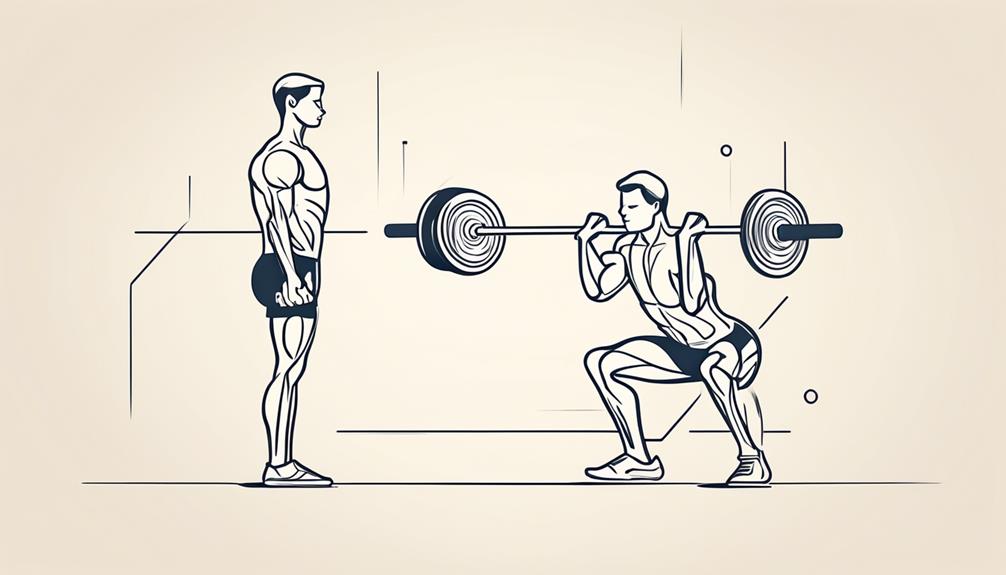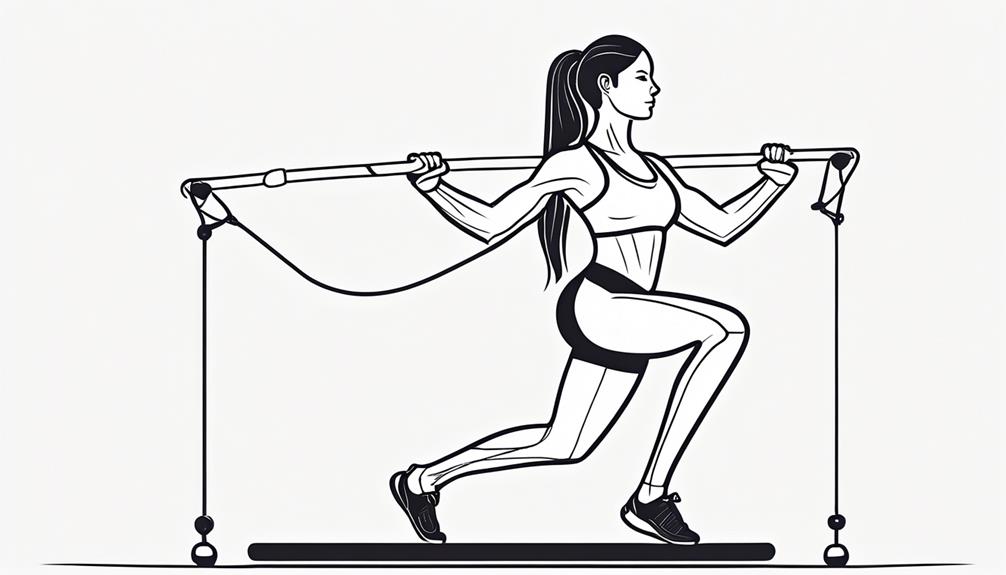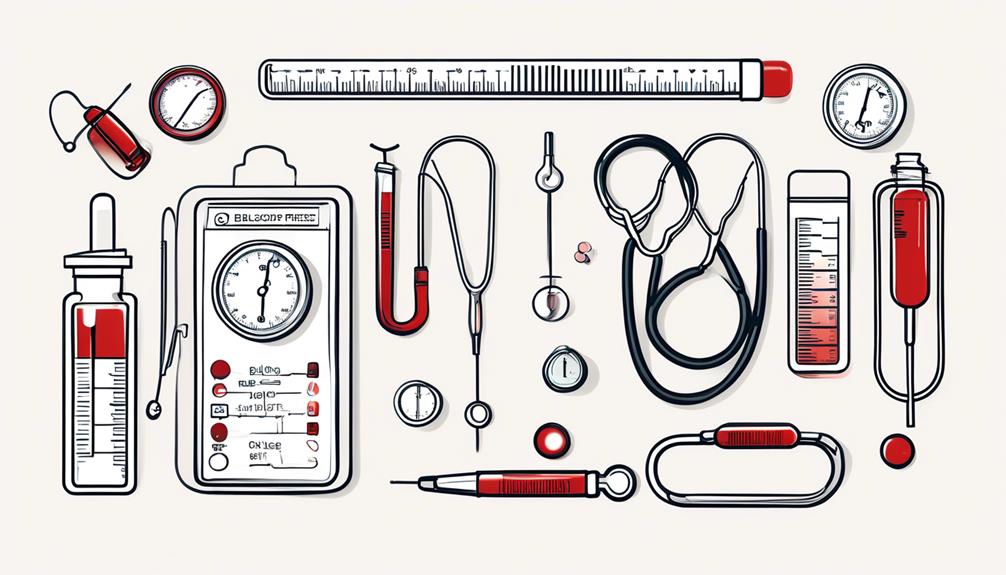Fortify Your Framework: The Ultimate Guide to Boosting Bone Density
As you navigate the journey of maintaining strong and healthy bones, it’s essential to fortify your framework with the knowledge and tools to boost bone density.
Understanding the intricate interplay of nutrients, exercise, and lifestyle habits on bone health can be akin to unlocking a complex puzzle. But fear not, as this guide will empower you with practical strategies and evidence-based insights to support your quest for stronger bones.
So, are you ready to discover the key elements that can significantly impact your bone density and overall well-being?
Key Takeaways
- Calcium and vitamin D are essential for maintaining strong and healthy bones.
- Engaging in weight-bearing exercises and resistance training can help reduce the risk of fractures.
- Adequate intake of calcium, vitamin D, and protein, along with regular exercise, play a significant role in managing fracture risk.
- Following a balanced diet that includes foods rich in vitamin D, vitamin K, and other essential nutrients is crucial for optimal bone density.
Importance of Calcium and Vitamin D
When aiming to enhance bone density, it’s essential to understand the pivotal role that calcium and vitamin D play in maintaining bone health. Calcium is a fundamental building block for bones, providing strength and structure.
However, the absorption of calcium is dependent on vitamin D, which facilitates its uptake in the body. Without sufficient vitamin D, even an adequate calcium intake may not fully support bone density.
Hormones such as parathyroid hormone and calcitonin also play a crucial role in regulating calcium levels in the blood and bone metabolism.
Supplementation of calcium and vitamin D may be necessary, especially for individuals who’ve limited sun exposure or cannot obtain enough of these nutrients through their diet alone. Insufficient intake of calcium and vitamin D can lead to conditions like osteoporosis, which weaken bones and increase the risk of fractures.
Consuming a balanced diet rich in calcium, vitamin D, and other essential nutrients is vital for promoting bone density and overall bone health. Understanding the significance of calcium, vitamin D, and the role of hormones in bone health is key to maintaining strong and healthy bones.
Managing Fracture Risk
To effectively manage fracture risk, engaging in weight-bearing exercises, such as walking or resistance training, is crucial for strengthening bones and reducing the likelihood of fractures. For older adults, in particular, maintaining bone health is essential to prevent fractures.
Resistance training, which includes activities like lifting weights or using resistance bands, offers numerous benefits for bone health. It helps to increase bone density, improve muscle strength, and enhance balance and coordination, all of which contribute to reducing the risk of fractures. When bones are subjected to the impact and stress of weight-bearing exercises, they respond by becoming stronger and denser, thereby decreasing the likelihood of fractures.
Additionally, resistance training contributes to the improvement of overall physical function and can aid in reducing the risk of falls, which are a common cause of fractures in older adults. Incorporating resistance training into your regular exercise routine, along with other measures such as ensuring adequate calcium, vitamin D, and protein intake, can significantly contribute to managing fracture risk and maintaining bone health as you age.
Impact of Weight-Bearing Exercise
Engage in weight-bearing exercises, such as walking and jogging, to stimulate bone growth and support bone density. The benefits of weight-bearing exercise for bone health are numerous.
Here are the best weight-bearing exercises for increasing bone density:
- Walking: A simple and accessible exercise that can be easily incorporated into your daily routine. It’s low-impact and helps in building bone strength.
- Jogging or Running: These high-impact activities help stimulate bone growth and improve bone density. They’re particularly beneficial for younger individuals or those looking to maintain bone health.
- Resistance Training: Engaging in exercises like weightlifting, using resistance bands, or bodyweight exercises helps maintain and improve bone density. These activities create stress on the bones, prompting them to build more cells and become denser.
Lifestyle Factors and Bone Health
With the impact of weight-bearing exercise on bone density established, it’s essential to now address the significant role that lifestyle factors play in maintaining healthy bones. Preventing osteoporosis is a key concern, and lifestyle choices can significantly influence this.
A sedentary lifestyle, for example, can have adverse effects on bone health. Regular physical activity, especially weight-bearing and resistance exercises, helps in preventing osteoporosis by stimulating bone formation and increasing bone density.
Additionally, adequate calcium and Vitamin D intake are crucial for maintaining healthy bones. Consuming these nutrients through a balanced diet or supplements, if necessary, supports bone density.
Conversely, factors such as smoking and heavy alcohol use have negative effects on bone health. Smoking can lead to decreased bone mass, while heavy alcohol use can also contribute to reduced bone density.
Therefore, making informed lifestyle choices such as engaging in regular physical activity, ensuring adequate nutrient intake, and avoiding harmful habits like smoking and excessive alcohol consumption are crucial for maintaining optimal bone density and preventing osteoporosis.
Dietary Strategies for Bone Density
Considering the essential role of nutrition in maintaining bone density, it’s imperative to prioritize dietary strategies that support bone health.
To enhance your bone density, focus on the following dietary measures:
- Enhance Nutrient Absorption: Opt for foods rich in vitamin D, such as fatty fish, fortified dairy products, and egg yolks. Pair these with sources of vitamin K, like leafy greens and fermented foods, to optimize calcium absorption and promote bone mineralization.
- Optimize Protein Intake: Ensure an adequate intake of lean proteins, including poultry, fish, legumes, and dairy products. Protein is crucial for bone health as it aids in the formation of collagen, the protein framework of bones, and supports overall bone structure.
- Balanced Diet: Emphasize a well-rounded diet that includes a variety of fruits, vegetables, whole grains, and healthy fats. This approach ensures that you receive a spectrum of essential nutrients, including calcium, magnesium, and phosphorus, vital for maintaining optimal bone density.
What Are the Best Strategies for Boosting Bone Density to Prevent Fractures?
One of the most effective fracture prevention strategies is ensuring a calcium-rich diet and regular weight-bearing exercises. Additionally, quitting smoking and limiting alcohol consumption can also help. Adequate intake of vitamin D and regular bone density screenings are important for early detection of any issues.
Frequently Asked Questions
Conclusion
In conclusion, prioritizing bone health is essential for overall well-being.
By focusing on key nutrients like calcium and vitamin D, engaging in weight-bearing exercise, and making positive lifestyle choices, you can effectively boost bone density and reduce the risk of fractures and conditions like osteoporosis.
This comprehensive guide provides evidence-based strategies for fortifying your framework and ensuring optimal bone health for years to come.







